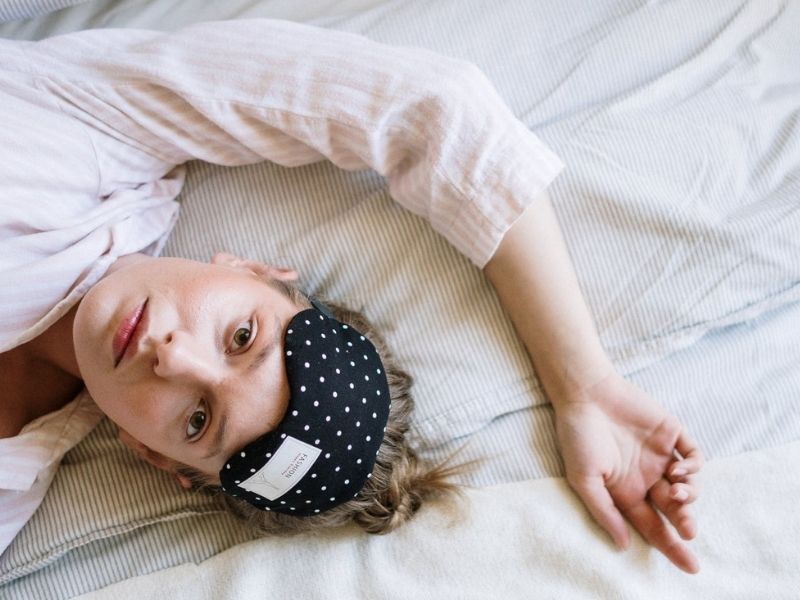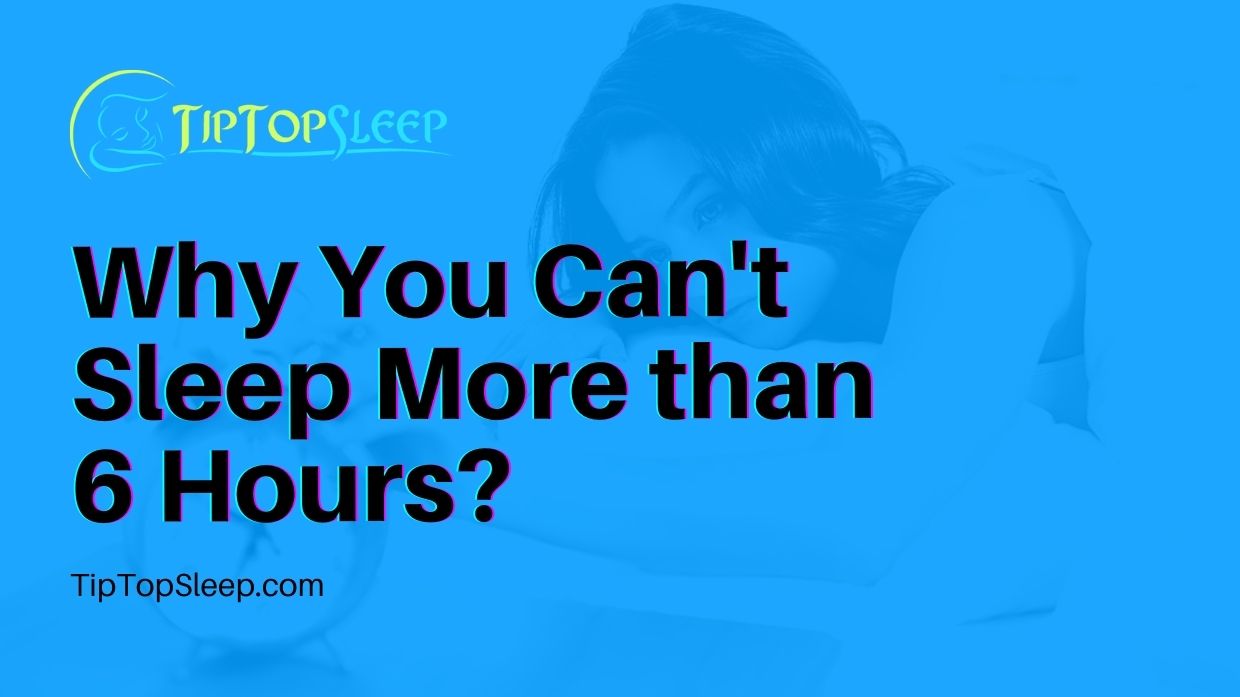You are here because you are already worried about why you can’t sleep more than 6 hours. Here’s what we have to tell you – you are not alone. In fact, there are 100 various sleeping and walking disorders known to mankind. And yes, many people wonder the same thing too. Let’s discuss these further in this post.
Even with the fast-paced life we all have right now, getting 6 hours of sleep isn’t justifiable. You might be able to function well and beat all your deadlines. But we have to be honest. That’s the perfect recipe for having chronic sleeping disorders.
A sleep deprivation study revealed that those who sleep 6 hours for two straight weeks functioned poorly, similar to those who were forced to stay awake for 48 hours. Just imagine what it can do to your life.
Common Sleeping Disorders

There are various sleeping disorders that can essentially affect your well-being. Here are the common ones that could be the reason why you lack sleep.
Insomnia
This is where you have difficulty in sleeping, or you cannot stay asleep. Among all the conditions, this is the most popular.
Hypersomnia
It’s a condition where there’s excessive daytime sleepiness. It could be due to sleep apnea and narcolepsy.
Parasomnias
You can categorize the sleep disruptive behaviors such as sleepwalking and even REM sleep behavior disorder as parasomnias.
Circadian Rhythm Disorders
You might experience circadian rhythm disorders if you have a jet lag or a shift work syndrome.
If you want to know more about sleeping disorders, here’s a quick video for you.
Lifestyle and Quality of Sleep
Aside from medical conditions, your way of living could also affect your sleeping patterns. Perhaps, you might be drinking alcohol or overeating before bedtime. Another reason is that you might be taking a lot of naps during the day. And of course, the most obvious one is that you consume too much caffeine.
What Happens When You are Sleep-Deprived?
For some, they could work efficiently even with just a few hours of sleep. But most people could not function properly. In fact, it could lead to drastic effects, such as depression, clumsiness, fatigue, forgetfulness, irritability, and loss of motivation.
The list could go on for days. But our point is that sleep deprivation is never a good thing and could even compromise your immune system.
Breaking Sleeping Myths
It’s also fitting that you understand some of the most common sleeping myths so you can improve your habits and act on it right away. You must take it seriously.
Daytime Sleepiness Means You Are Not Getting Enough Sleep
Most people think that you will only experience daytime sleepiness if you didn’t get enough sleep at night. However, this is possible if you are suffering from a more serious sleep disorder, which we enumerated above.
Old People Need Lesser Sleep
You often hear that older people do not need to sleep 8 hours every night. But that’s another myth. The requirement will not change even as we grow older.
Snoring is Nothing to Worry About
In most cases, it’s not harmful. But it could also be a sign of sleep apnea, which could lead to other medical problems like diabetes and cardiovascular issues.
Health Problems and Amount of Sleep are Not Related
Your health condition can undoubtedly affect the quality of your sleep. This has been backed up by studies over the years. Let’s have a specific example.
For people with diabetes, lack of sleep can worsen their condition. It’s because not sleeping enough can affect your body to use insulin.
Signs You are Not Getting Enough Sleep
If you don’t get 8 hours of sleep, that’s already a clear sign that you are sleep deprived. But there are also subtle signs you have to watch out for.
- You always need an alarm to wake you up
- You depend on your snooze button
- You easily feel tired in the afternoon
- You can’t get up easily in the morning
- You always need a nap during the day
- You want to sleep all day on weekends
How to Sleep Longer Than 6 Hours?
We always discourage that you take sleeping pills. That’s because there are many side effects that could happen. Remember, there are natural ways to improve the amount and quality of your sleep. For one, try to stick with a regular sleeping schedule. A regular exercise should help you as well, and you need to be selective with your beverages and foods.
Apart from the above, you might need to learn stress management. That could also affect your sleeping habits. A meditation session every night should help you too.
Now, the next tip might seem like a bit of work, but why don’t you redecorate your room? Perhaps, there are a lot of distractions and that’s the reason why you couldn’t sleep. If you have your television installed in your bedroom, we recommend removing it as it could cause you to over-watch, which could essentially hamper your sleep. Adding sleep aids could be beneficial too. There are noise sound machines and even moon projector lamps that could make you more relaxed. These little things can contribute so that you can get quality rest.
DOUNI Sleep Sound Machine
Speaking of a noise sound machine, we found the one from DOUNI to be absolutely amazing. It provides 24 soothing sounds, and you can even take it anywhere you go.
We Do Not Have an Idea How Much We Sleep
Here’s a truth bomb that you have to know. Most people are not aware of how many hours they sleep. In fact, they overestimate it. For example, if you are sleeping for 7 hours, you are likely sleeping for 6. It’s best if you use apps where you can determine the quality of your sleep.
Short Sleep Syndrome, Why You Can’t Sleep More Than 6 Hours
Remember how we mentioned that there are people who could function well even if they do not get the recommended hours of sleep? If you are one of them, then you might have the short sleep syndrome or SSS. This is referred to as a condition where you can sleep six hours or less per night, and still be able to work properly.
To date, even experts are still baffled about this condition. But others believe that genetics could be one of the factors.
Conclusion
Why can’t I sleep more than 6 hours?
It’s a question we hoped was addressed in this post. Now, even if you can function perfectly even with such a short span of sleep, it’s still best to consult your doctor. That way, you can rule out any medical conditions.
As much as it is tempting, never self-diagnose or self-medicate. You might put your health in great danger.


